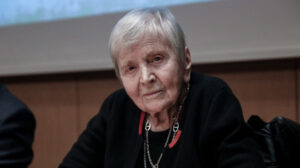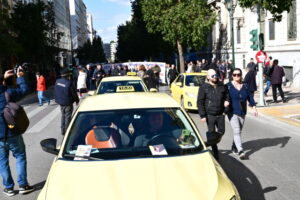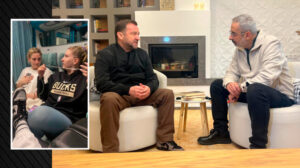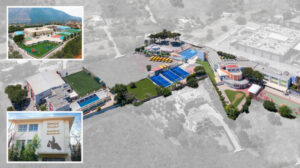“Right-wing extremists are growing more confident. They continue to focus on protesting against the perceived Islamisation of the Netherlands, the arrival of asylum seekers and the perceived loss of Dutch identity…” [emphasis added] wrote Dutch authorities in a September threat assessment.
Islamization in the Netherlands, however, is not merely a “perception” of “right-wing extremists” but an increasingly established trend. The threat assessment by the country’s National Coordinator for Security and Counterterrorism, for example, shows that Islamic terrorism has been growing for several years. “Despite stagnating growth, the size of the Dutch jihadist movement is cause for concern,” it wrote.
“This group, which grew significantly between 2013 and 2016, may be inclined to embrace a ‘revenge narrative’ that blames the West for the collapse of the ‘caliphate’…Jihadists now no longer have a compelling reason to travel to that part of the world, and their focus has shifted to da’wa, or spreading the jihadist message. This may lead to a rise in the number of jihadists in the Netherlands. In addition to adherents of jihadism, there are also several thousand jihadist sympathisers, and ISIS sympathisers in particular, in the Netherlands.”
The Netherlands has been the scene of several attempted jihadist terrorist attacks in recent months. In late September, police arrested seven suspected jihadist terrorists who were planning a massive attack there, including attacking a large event – the police did not say where – by attacking the site with automatic rifles and a car bomb. Earlier in September, an Afghan man who had a “terrorist motive” according to Dutch officials, stabbed two Americans at a train station in Amsterdam. “It is apparent from his statements that he believes that in the Netherlands, the Prophet Muhammad, the Quran, Islam and Allah are repeatedly insulted,” prosecutors said. In August, another man was shot and arrested at a supermarket in the city of Naaldwijk, where he was waving a knife at people while shouting “Allahu Akbar”.
The threat level for the Netherlands remains at “substantial” (level 4 on a scale of 1 to 5), which means that the risk of an Islamic terrorist attack in the Netherlands is very real, although not necessarily imminent.
There are several other factors, apart from Islamic terrorism, that show an increase in the Islamization of the Netherlands:
One is the growth of Islamic parties. In the last parliamentary elections, Denk, a Muslim party that was formed six months ahead of the elections by two Turks who were former members of the Socialist party, received one-third of the Muslim vote and three seats in parliament. The party does not hide its affinity for Turkey: Criticism of Turkey is taboo, as is its predictable refusal to name the Turkish mass-slaughter of the Armenians during the First World War a genocide. The Denk party ran on a platform against the integration of immigrants into Dutch society (instead advocating “mutual acceptance”, a euphemism for creating parallel Muslim societies); and for the establishment of a “racism police” that would register “offenders” and exclude them from holding public office. In July, a former political activist for Denk, Hussein Jamakovic, sent an email to the Telegraaf newspaper, as well as three other news organizations. The email said, “May you get cancer, you filthy, far-right cancer Jews.” The email came after the news outlets brought reports claiming that Jamakovic had expressed sympathy for ISIS. In June, a van was deliberately driven into the entrance of the Telegraaf newspaper’s building, where it burst into flames.
Read more HERE
Ask me anything
Explore related questions





